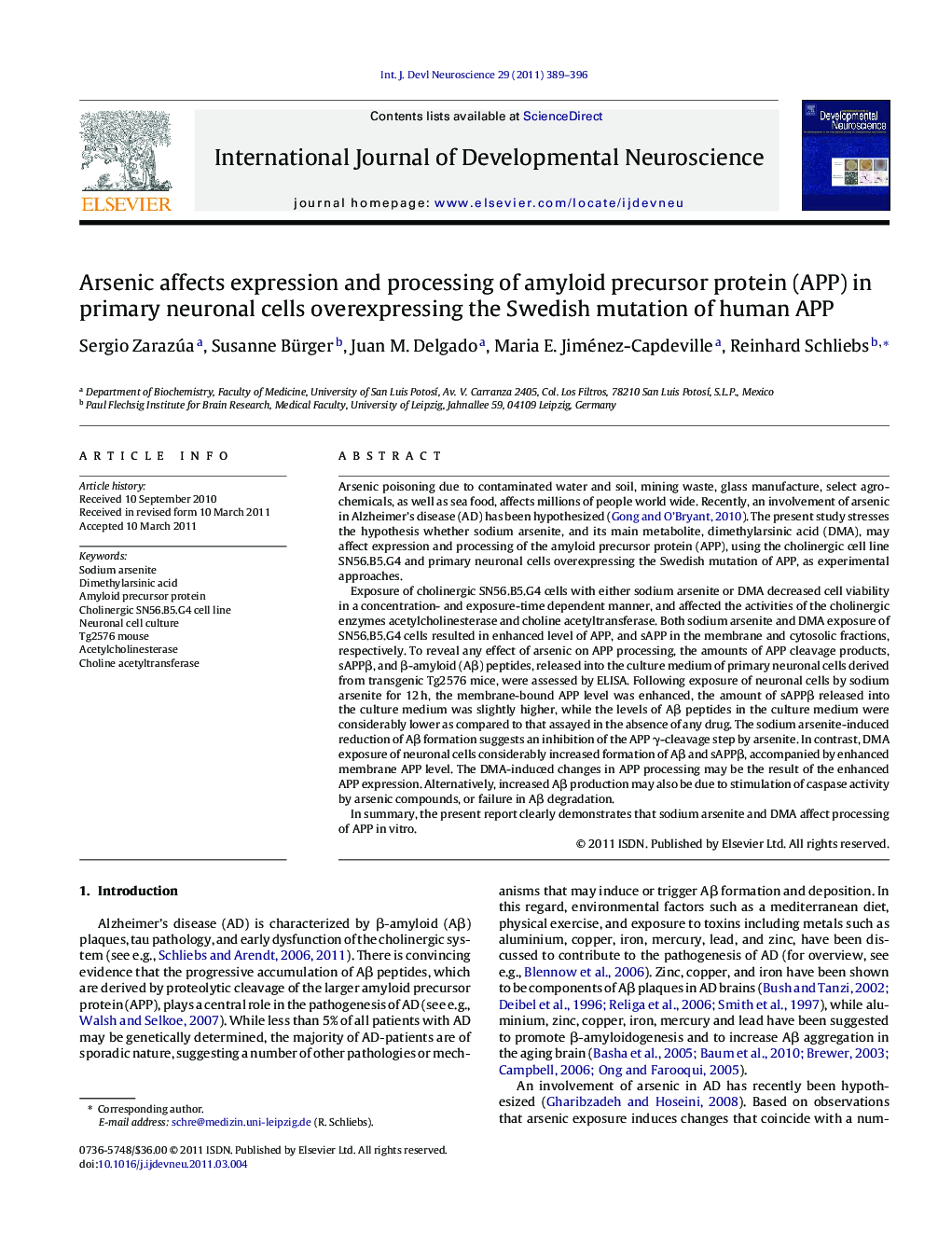| کد مقاله | کد نشریه | سال انتشار | مقاله انگلیسی | نسخه تمام متن |
|---|---|---|---|---|
| 2786693 | 1568420 | 2011 | 8 صفحه PDF | دانلود رایگان |

Arsenic poisoning due to contaminated water and soil, mining waste, glass manufacture, select agrochemicals, as well as sea food, affects millions of people world wide. Recently, an involvement of arsenic in Alzheimer's disease (AD) has been hypothesized (Gong and O’Bryant, 2010). The present study stresses the hypothesis whether sodium arsenite, and its main metabolite, dimethylarsinic acid (DMA), may affect expression and processing of the amyloid precursor protein (APP), using the cholinergic cell line SN56.B5.G4 and primary neuronal cells overexpressing the Swedish mutation of APP, as experimental approaches.Exposure of cholinergic SN56.B5.G4 cells with either sodium arsenite or DMA decreased cell viability in a concentration- and exposure-time dependent manner, and affected the activities of the cholinergic enzymes acetylcholinesterase and choline acetyltransferase. Both sodium arsenite and DMA exposure of SN56.B5.G4 cells resulted in enhanced level of APP, and sAPP in the membrane and cytosolic fractions, respectively. To reveal any effect of arsenic on APP processing, the amounts of APP cleavage products, sAPPβ, and β-amyloid (Aβ) peptides, released into the culture medium of primary neuronal cells derived from transgenic Tg2576 mice, were assessed by ELISA. Following exposure of neuronal cells by sodium arsenite for 12 h, the membrane-bound APP level was enhanced, the amount of sAPPβ released into the culture medium was slightly higher, while the levels of Aβ peptides in the culture medium were considerably lower as compared to that assayed in the absence of any drug. The sodium arsenite-induced reduction of Aβ formation suggests an inhibition of the APP γ-cleavage step by arsenite. In contrast, DMA exposure of neuronal cells considerably increased formation of Aβ and sAPPβ, accompanied by enhanced membrane APP level. The DMA-induced changes in APP processing may be the result of the enhanced APP expression. Alternatively, increased Aβ production may also be due to stimulation of caspase activity by arsenic compounds, or failure in Aβ degradation.In summary, the present report clearly demonstrates that sodium arsenite and DMA affect processing of APP in vitro.
► The study stresses the hypothesis of a role of arsenic in APP processing.
► Dimethylarsinic acid (DMA) increased formation of β-amyloid and sAPPβ.
► Both arsenite and DMA exposure of neuronal cells enhance APP expression.
► The data suggest that arsenic exposure may contribute to Alzheimer's disease.
Journal: International Journal of Developmental Neuroscience - Volume 29, Issue 4, June 2011, Pages 389–396